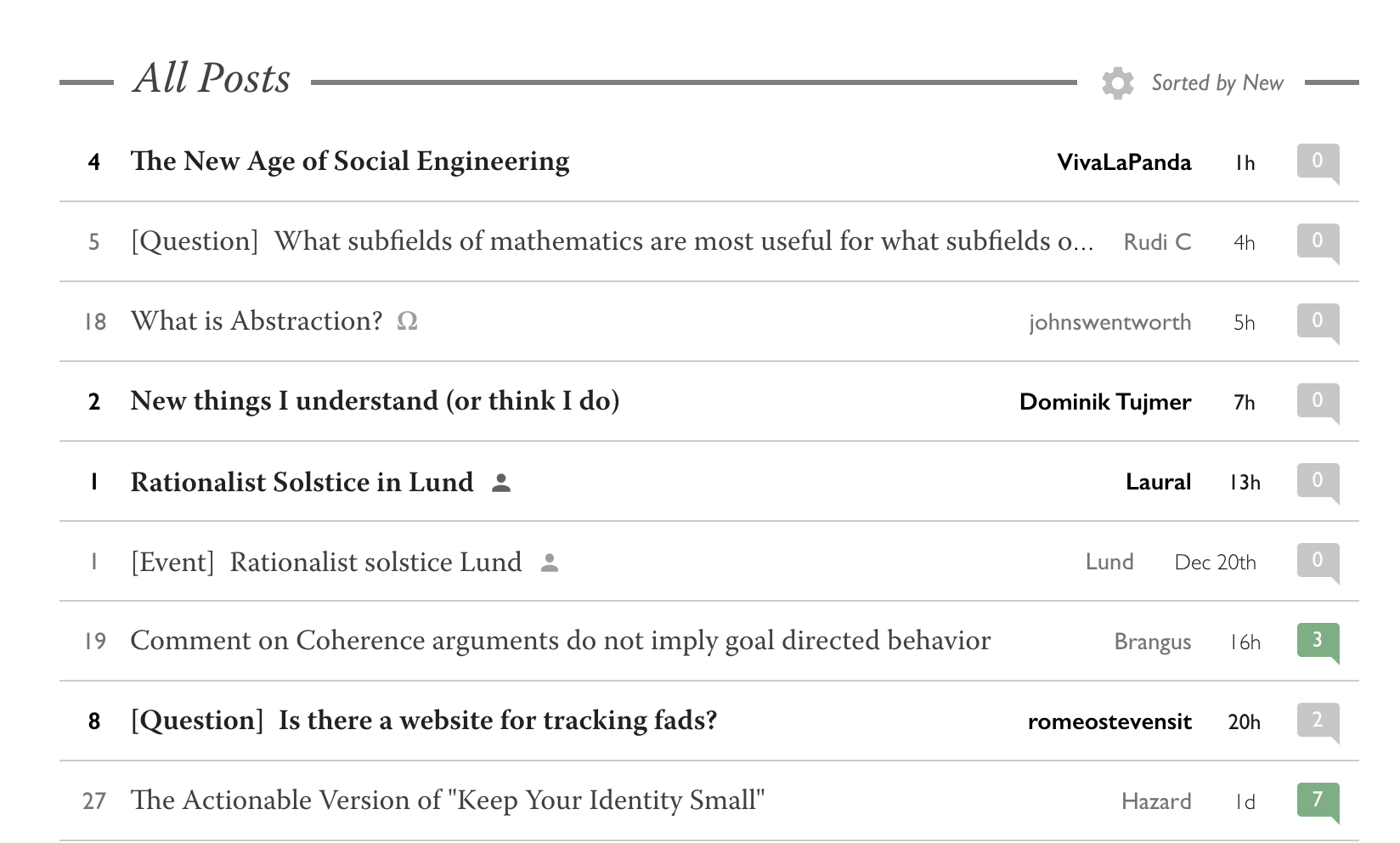This is an experiment in short-form content on LW2.0. I'll be using the comment section of this post as a repository of short, sometimes-half-baked posts that either:
- don't feel ready to be written up as a full post
- I think the process of writing them up might make them worse (i.e. longer than they need to be)
I ask people not to create top-level comments here, but feel free to reply to comments like you would a FB post.



So Alasdair MacIntyre, says that all enquiry into truth and practical rationality takes place within a tradition, sometimes capital-t Tradition, that provides standards for things like "What is a good argument" and "What things can I take for granted" and so on. You never zoom all the way back to simple self-evident truths or raw-sense data --- it's just too far to go. (I don't know if I'd actually recommend MacIntyre to you, he's probably not sufficiently dense / interesting for your projects, he's like a weird blend of Aquinas and Kuhn and Lakatos, but he is interesting at least, if you have a tolerance for.... the kind of thing he is.)
What struck me with a fair number of reviews, at this point, was that they seemed... kinda resigned to a LW Tradition, if it ever existed, no longer really being a single thing? Like we don't have shared standards any more for what is a good argument or what things can be taken for granted (maybe we never did, and I'm golden-age fallacying). There were some reviews saying "idk if this is true, but it did influence people" and others being like "well I think this is kinda dumb, but seems important" and I know I wrote one being like "well these are at least pretty representative arguments of the kind of things people say to each other in these contexts."
Anyhow what I'm saying is that -- if we operate in a MacIntyrean frame -- it makes sense to be like "this is the best work we have" within a Tradition, but humans start to spit out NaNs / operation not defined if you try to ask them "is this the best work we have" across Traditions. I don't know if this is true of ideal reasoners but it does seem to be true of... um, any reasoners we've ever seen, which is more relevant.